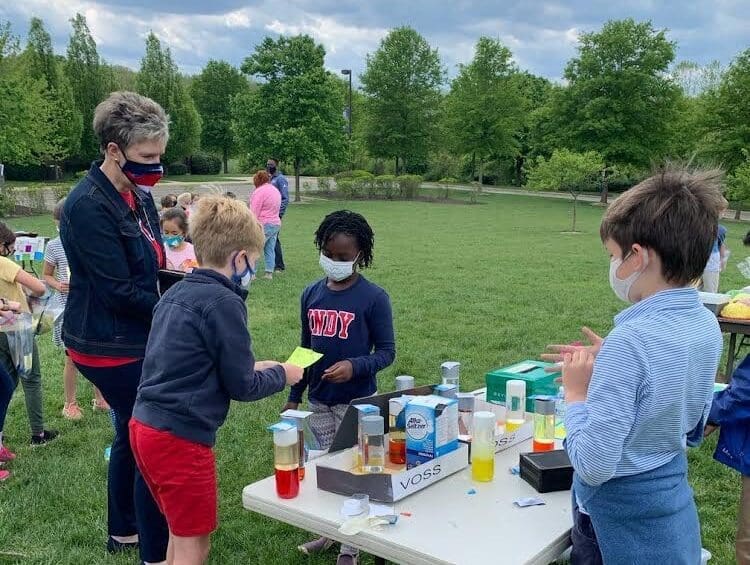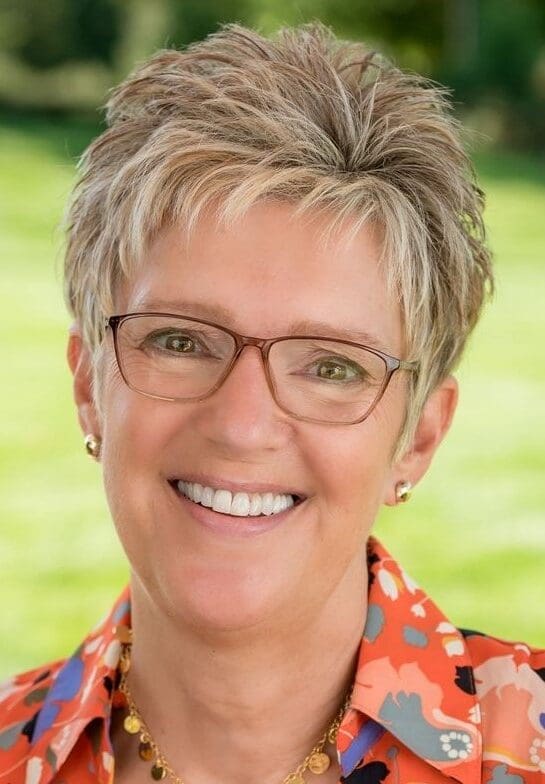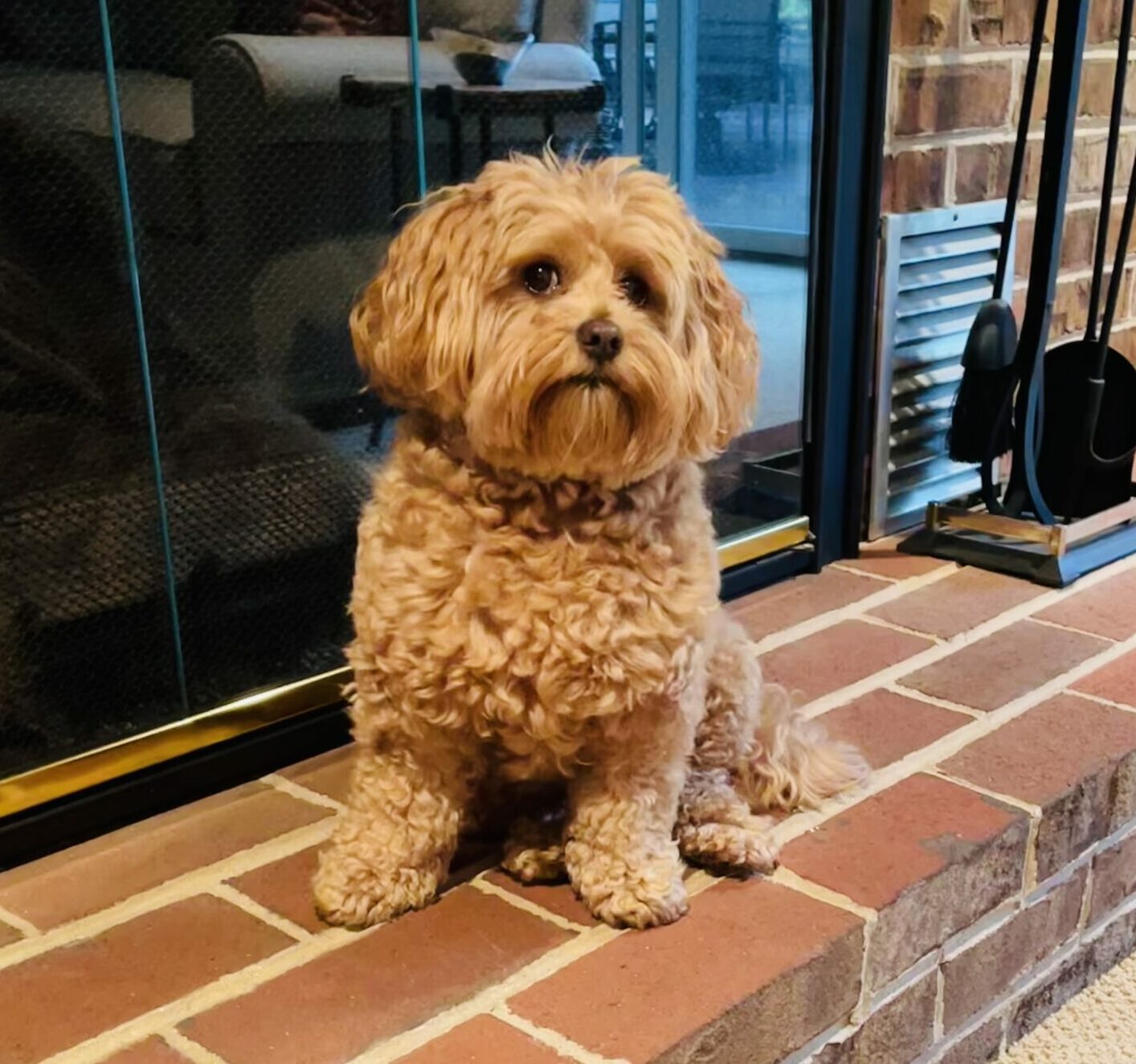
Vicky Yatzus (left), head of the Independence School, har prioritized relationships in her 40 years of work in the region.
Schools are in the relationship business, says Vicky Yatzus, who is retiring in June after 15 years as head of Independence School in Newark.
That’s the only way to ensure children’s academic and social success, the private school administrator said.
“We’re not organizations that can swiftly and quickly move on a dime and change things up because our kids need constancy,” said Yatzus.
“They come to school every day and they have expectations about what’s going to happen. We know from research that the more consistent we are and the more supportive we are and the more our kids understand what the expectations are, the more successful they are in school.”
That lack of consistency was one of the tragedies of the COVID-19 pandemic, which forced classes to go virtual.
While virtual classes and online lessons have a place in teaching arsenals, Yatzus said, “Not every child can handle an all-online option. To be successful it has to be done well and closely monitored.”
Yatzus, whose first college degree was in psychology from her home country of England, took a round-about path into her 40-year teaching career in Delaware.
She originally picked psychology because she was fascinated by why people thought and acted as they do.
Born and raised in the United Kingdom, Yatzus earned that degree from Newcastle University in northeast England in 1979. She quickly realized she would need to earn a master’s degree to really make an impact in the field.
“I didn’t want to do that so I made the decision to find a job and sort of figure out what it was I really wanted to do,” she said.
MORE IN EDU: Eds up: School Board candidates must file by March 3
Yatzus worked in export sales for a while and then decided to act on her desire to work with children by going into teaching.
Her parents had moved to Delaware while she was in college, and she decided to move to the First State, too, and in 1979 enrolled at the University of Delaware.
UD officials suggested she earn a master’s instead of a simple certification and offered her a scholarship that would pay for her tuition and give her a stipend for working as a teaching assistant in the College of Education.
While there, she met someone who worked at the Delaware Learning Center, now called the Centreville Layton School.
“It was a school dedicated to looking at children from a developmental perspective, looking at their language development, motor development, and academic development,” she said, “and then through the process of using different kinds of professionals to fill in gaps and holes and mainstreaming those children back into regular schools.”
Yatzus started teaching career there in 1981 and stayed for 27 years. She taught kindergarten through fourth grade before transitioning to an administrative role supervising faculty and monitoring student growth, individual education plans and more.
After the founding head of school unexpectedly retired, Yatzus was promoted to the assistant head of school and then head of school, a job she kept for 20 years.
She left Centreville to run Independence School in fall 2009.
“It would have been very comfortable for me to just stay,” she said, “but this opportunity arose and I wanted to take a risk and do something different and learn from it.
Many people assume administrator’s days largely swing from pushing paperwork to dealing with complaints from parents.
Yatzus says that’s not true. Day-to-day life is always different, and always lively, whether it’s planning classes for new spaces, dealing with security, or managing partnerships with other organizations..
“It can really be whatever you want it to be,” she said.
Independence School sits on 90 acres of land where in 2019 the school unveiled a 57,000-square-foot classroom, divided into 14 areas including streams, wetlands and ponds.
Perfect for classes after the COVID-19 pandemic began, it had been in the works before anyone had heard of the virus.
Yatzus continues working with teachers on ways to utilize that land for impactful outdoor learning, as well as determining what metrics will be used to measure how successful outdoor learning is.
Since the shooting at an elementary school in Uvalde, Texas last year, Yatzus said she’s had regular conferences and meetings with school safety experts.
Yatzus also helped create a partnership with the 1 in 7 Billion Foundation, an organization that takes a shower truck into areas where people don’t have access to showers. The school raises money for the programs and also donates socks, toothpaste and other toiletries that people in need may not have.
In between are meetings, presentations and check-ins with teachers and classrooms throughout her day, she said.
“There’s a little more to it than maybe in the public school world, where the principal has some different roles and may not be quite as involved in the big picture as a head of an independent school,” she said.
Independence charges between $16,000 and $23,000 a year for tuition and primarily serves middle class families, but Yatzus pointed out the school has a robust financial aid program to help families who otherwise would not be able to afford to go there.
Yatzus recently was recognized by the Delaware Association of Independent Schools and the Association of Delaware Valley Independent Schools for her contributions to the independent school community throughout the region.
Away from work, Yatzus enjoys traveling and spending time with her three daughters.
“I love to garden and find that to be very relaxing and a great way to refill my tank,” she said. “I also enjoy walking and spending time with my dog, Ruby.”
Being on her way out doesn’t stop her from having opinions about areas that still need focus.
One is addressing teacher retention and compensation, she said.
“We need to find ways to attract people into education and, once in, retain them through strong compensation and benefit plans that also take into account quality of life,” she said. “Educators have been through a lot over the past few years and we need to respond so that we continue to have a strong pipeline.”
She’s been happy to see programs like grow-your-own teacher pathways that allow students to get some sort of certification in a field before even entering college.
There are plenty of things in Delaware education to be excited about, she said.
Yatzus loves that there’s school choice in the state and cites that program as one of the highlights of Delaware’s education system.
“That’s important as parents when you’re trying to make decisions about what kind of education you want your children to have,” she said. “You can choose between a variety of different types of schools, whether it’s public school, whether it’s a magnet school, whether it’s a charter school, or whether it’s a private independent school, or a private Catholic school, or a private religious school, there’s a ton of options.”
The sheer attention to education, whether it be from community members or legislators, is another plus in Delaware education, she said.
“We have people in Delaware who care deeply about education, and I think we have people who have developed partnerships in our community to try and solve some of the bigger problems that we face in this community,” she said. “And I do see progress in that, so I think that’s very positive.”

Raised in Doylestown, Pennsylvania, Jarek earned a B.A. in journalism and a B.A. in political science from Temple University in 2021. After running CNN’s Michael Smerconish’s YouTube channel, Jarek became a reporter for the Bucks County Herald before joining Delaware LIVE News.
Jarek can be reached by email at [email protected] or by phone at (215) 450-9982. Follow him on Twitter @jarekrutz
Share this Post






